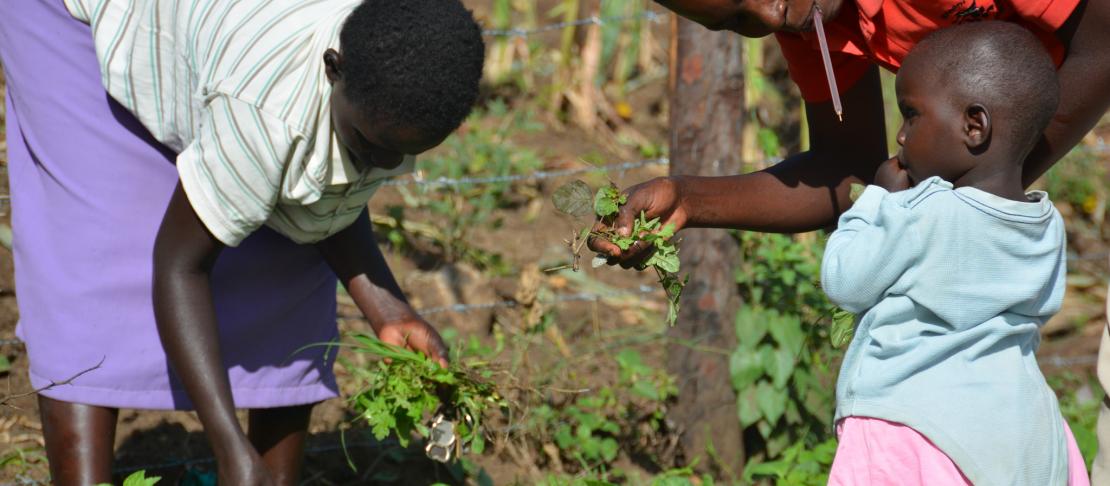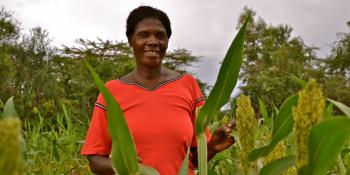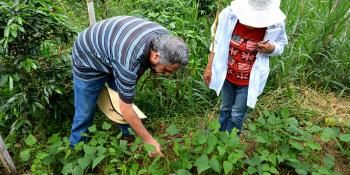Adaptation models for climate-smart practices to be developed

Researchers visited climate-smart villages around Lushoto, Tanzania in June to begin the process of local knowledge gathering from farmers and experts to create Climate-Smart Agriculture packages of practices.
A team of CIAT DAPA (International Center for Tropical Agriculture Decision and Policy Analysis Program) and Soils researchers visited the CCAFS Climate-Smart Village in Northern Tanzania to begin work aiming to produce a model for adaptation of CSA practices, ultimately scalable across similar agro-ecological areas in the country. Farmer and local expert knowledge will be integral in designing and effectively implementing fully informed, locally appropriate adaptation models to ensure long term, climate-smart, sustainable benefits.
These objectives are part of several new projects in the region including;
IFAD funded research; ‘Increasing Food Security and Farming System Resilience in East Africa through Wide-Scale Adoption of Climate-Smart Agriculture Practices’
Bill & Melinda Gates Foundation funded research; ‘Grand Challenges Explorations Round 12. Less is More: The 5Q Approach’
OFID funded research; ‘Climate Smart Technologies and Practices: Using Science Knowledge and Expert Feedback to Accelerate Local Adoption’
CCAFS’s Flagship 4 (FP4) research on ‘Influencing and Linking Policies and Institutions from National to Local Level for the Development and Adoption of Climate-Resilient Food Systems’
Lushoto, in the West Usambara Mountains in Northern Tanzania, has been selected as the location to initiate the work. Researchers visited in June 2014 to begin the process of local knowledge gathering from farmers and experts to create Climate-Smart Agriculture (CSA) packages of practices appropriate for potential demonstration and adoption in Lushoto, alongside exploration of implementation methodology and policy considerations. Data gathered from these workshops build on existing efforts, including the CCAFS Baseline Surveys, IMPACTLite surveys, land and soil health biophysical surveys, as well as previous initiatives, to identify current CSA practices.
New insights into farmers’ perceptions on CSA practices suitable for adoption were gathered through a participatory workshop attended by over thirty men and women farming in the seven CCAFS Lushoto baseline villages. Activities identified farmer-selected, context-specific CSA packages for adoption, building upon past primary research. Stimulation of thought was initiated through participatory mapping of agro-ecological characteristics of Lushoto; displaying variance in temperatures, topography, seasons and agriculture and dividing the area into four zones.
Read the full story "Climate Smart Knowledge Sharing in Tanzania"
Read more about climate-smart villages in the Usambara Highlands:
Improving potato yields for farmers in the Usambara Highlands
Better bean varieties for Usambara’s rural poor
Testing appropriate climate smart practices with farmers' help
This blog was originally posted by the International Center for Tropical Agriculture's (CIAT) Decision and Policy Analysis Program (DAPA).



